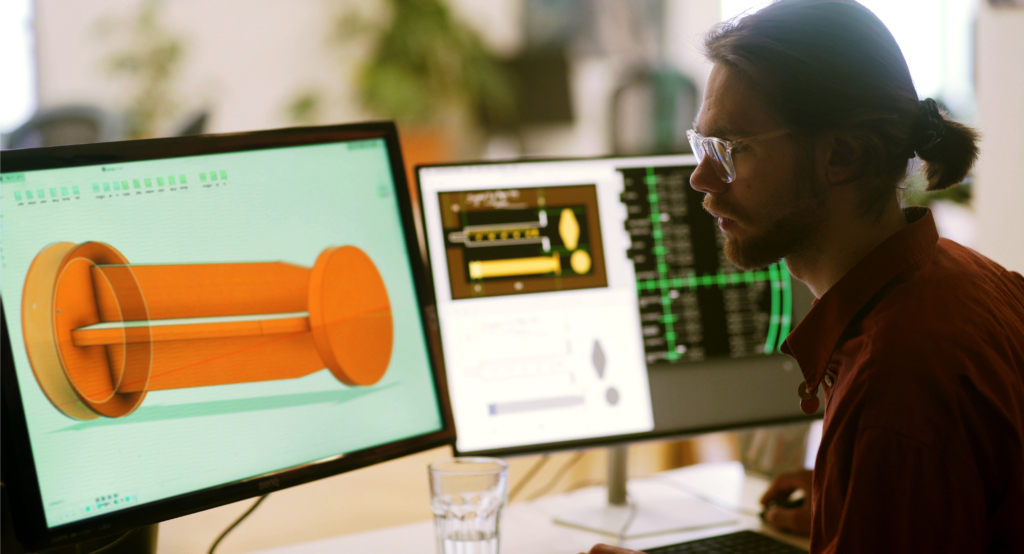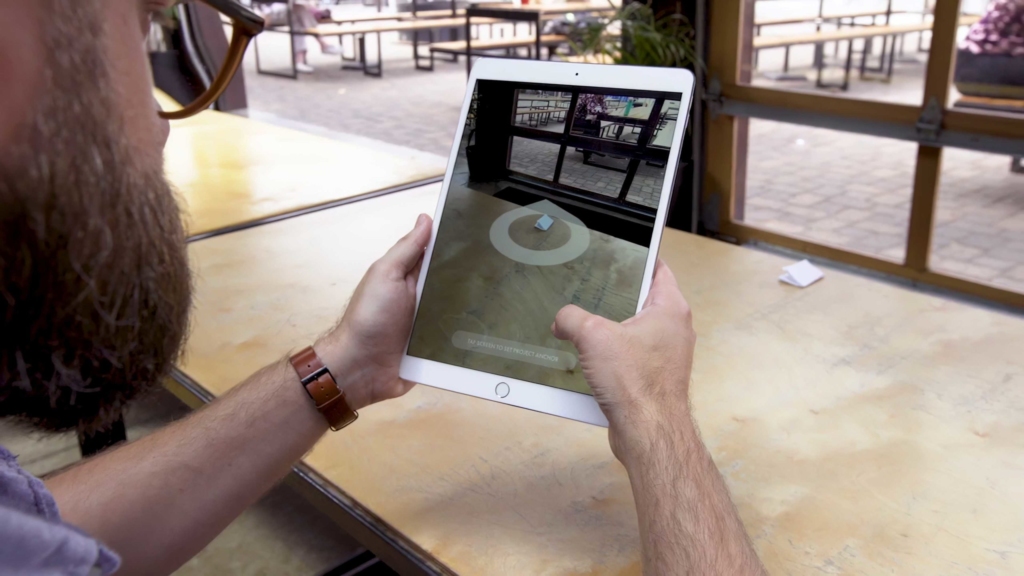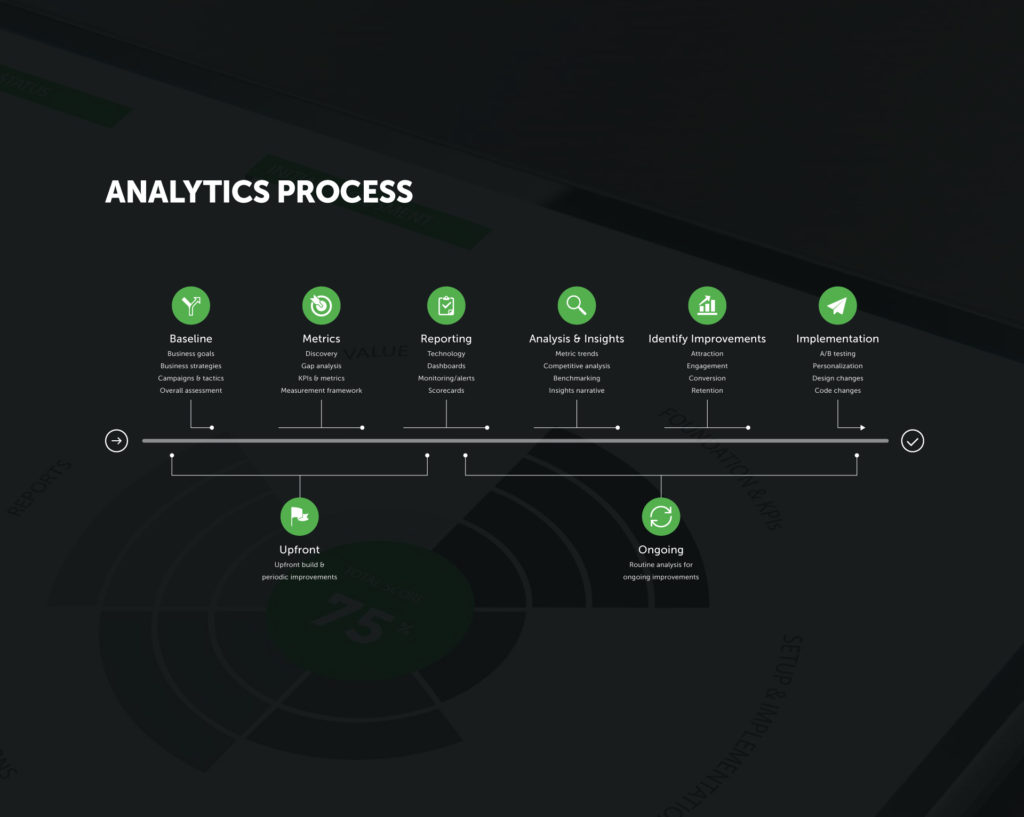Article
“Programação é muito mais que codificar”: How Business Knowledge Strengthens Nearshore Software Development Services

A note from the Fresh team: Did you know our nearshore software development team extends south of Costa Rica—to Brazil?
Although the primary role of our nearshore software development team is to provide our clients with opportunities for multi-time zone support, flexible teaming, and cost savings, we also have the opportunity to access new markets and work with more clients worldwide.
Brazil—where the most common spoken language is Portuguese—is an exciting place for Fresh to get involved. Having English-speaking technology innovation consultants fluent in Portuguese allows us to substantially increase our potential for innovative impact worldwide, beyond what we’re already doing in the LATAM ports industry and other sectors.
The digital language learning program Babbel highlights Portuguese as the seventh-most spoken language worldwide, a critical pillar for communication in numerous locations:
- “Today, Portuguese is spoken by 232 million native speakers in countries like Brazil, Angola, Mozambique, Cape Verde, Guinea-Bissau, and São Tomé and Príncipe.” (source)
Communicating in the seventh-most spoken language also opens up vital opportunities to deliver value to clients. The International Trade Administration discusses how, for a technology innovation services company like Fresh, working in a Portuguese-language-speaking country like Brazil is strategically valuable:
- “Companies with know-how and technology in [areas like Artificial Intelligence, the Internet of Things, and Cloud computing] are encouraged to establish partnerships with local Brazilian companies. To succeed in Brazil, U.S. companies must either be established in-country, or have a well-informed local representative.”
The following post by Ewerton Williams highlights:
- A valuable perspective on the importance of being a multi-dimensional nearshore software developer with an acute sense of business, and
- The professional approach of one of our world-class employees
With his multi-lingual capabilities, connection to our Costa Rican team, and roots in a vibrant country with one of the world’s largest economies (Nominal GDP: USD 2.126 trillion; GDP per capita: USD 10,412 per inhabitant; GDP growth: 3.1%), Ewerton is helping Fresh become even better at providing nearshore software development consulting services and growing our impact in a country where our Agtech, manufacturing, and technology consulting capabilities are a logical fit.

Ewerton Williams — Azure-certified full-stack developer, drummer, and Brazilian adventurer.
The Critical Role of Business Vision in Nearshore Software Development
Working in the software development field has become both an interest and a viable career for many due to the high demand, a theme which was especially clear during the Covid-19 pandemic. Besides offering a high salary and strong benefits, programming opportunities give nearshore software development professionals the great advantage of being able to perform the work far away from the office—in my case, over 3,000 miles away. Nearshore software development, in the modern business world, is a critical field.
However, I’ve come to believe that only knowing how to program isn’t enough to elevate your career to the next level. To provide exceptional nearshore software development services to your clients, it’s necessary to have a clear and broad vision about what is being developed, about the client’s context and the business, about the use scenarios, environment, and the people who will use the system.
Having a passion for possessing this broad vision—along with the ability to not fear bi-lingual asynchronous communication and not being ashamed to ask questions in order to produce better outcomes—drives me to create clear pathways for strong client relationships and higher quality software deliverables.
Here are four tips about how you can elevate your practice as a nearshore software developer, in addition to insights about how we approach nearshore software development at Fresh Consulting.
Tip #1: Leverage your past experience to strengthen your capabilities as a nearshore software developer
My interest in programming was not part of the “boom” during the pandemic; it started several years earlier, and in hindsight, I can acknowledge that it was somewhat accidental.
As an adolescent, my passion was working with electronics. I liked to deconstruct my toys to understand how they worked and, when they were broken, try to fix them. At a certain point in my adolescence, I decided that I wanted to be an electrical engineer, but I knew I needed to be good at complex mathematics and physics, which I wasn’t.
(coincidentally, we have lots of people at Fresh who are—check out our electrical engineering service area for more information)
Because of this, I decided, before pursuing education in electronics, to complete a degree that would force me to be good in those two subjects, and so I chose to study a Bachelor’s in Physics—an area of study that had low competition at the time.
Up to that point, I actually had no idea what programming was. In fact, I only got a computer shortly after starting the physics degree.
At that time, I lived in a small town in the interior of Pernambuco, called Escada, and there was a Technical School that started offering courses for computer technicians. Since I liked using computers (I used them a lot in Lan Houses before getting my first PC), I decided to enroll. The first module was to learn how to use Office tools—Word, Excel, and PowerPoint—which I found to be very interesting. The second module, which was less interesting, focused on computer networks, similar to IT.
The third and last module focused on software application development. It was at that moment that I discovered the deeper world of programming. I was fascinated by being able not only to use a computer but also to write instructions that made the computer act the way I wanted. During that third module, I fell in love with programming. There were days when I stayed up all night programming, and I realized that this is what would make me wake up happy to go to work everyday.
With my career decision made, I interrupted the physics degree and studied for a year to take the necessary exam to enter the Federal University of Pernambuco. The available course options were Computer Science, Computer Engineering, and Information Systems.
For me, my nearshore software development practice has been defined by a passion for a craft. For those who pursue it in the same fashion—while also leveraging their past experiences to influence their approach—the outcomes will be of higher quality. People doing what they love goes a long way to affecting processes, workflows, and client relationships.
Tip #2: Understand holistic information systems to bridge people, technology, and business
In my experience, the key focus of computer engineering has primarily been embedded firmware systems and hardware. In computer science, my courses focused on professional skills and gaining a deep knowledge of holistic software development, including compilers, memory management, hardware, etc.
My desire was to enter the latter. But it was not possible because, in addition to the university being over 40 miles from where I lived, the course schedule was in the morning and afternoon, which prevented me from working, something necessary for me at the time. I decided to opt for information systems as it was an evening course.
Although it wasn’t what I had in mind initially, the information systems course has key differences compared to what was being offered in the computer science course. My first impression was that information systems wouldn’t be as interesting, but it actually proved to be very important in my career as a developer.
In the information systems at my university, 30% of the course is focused on the administrative area. This offers the student—in addition to technical knowledge—knowledge in the area of business, processes, and people management.
Some of the information systems courses included:
- Contemporary Administration
- Analysis of Organizations
- Organizational Behavior
- Management of People and Teams
- Strategy and Planning
For many software developers, this could seem like a waste of time—even unnecessary. But I believe programmers who possess holistic knowledge and skills can better influence software development projects from its conception to delivery.
This is especially important in nearshore software development where unexpected expertise not only improves client satisfaction, but also can enhance workflow efficiency, maintain critical timelines, and apply resources strategically.
Tip #3: Gain business knowledge whenever you can and apply it to your programming practice
I can remember hearing criticisms about the courses I took focusing too much on teaching administrative subjects, claiming they were unnecessary topics that only served to “fill space”. I confess that sometimes I agreed with these statements. However, right at the beginning of my career, I was able to see the importance of having a broad view of the business and of having a good relationship with the client.
In my first experience as a developer, I worked inside the client’s office, implementing a system to manage the flow of service from the first contact with the client to the distribution of tasks among the internal areas.
The fact that I was in constant contact with the future users of the system under development, and could see their work routine, enabled me to communicate more clearly and assertively. This gave me a more accurate understanding of their needs, which in turn allowed me to make suggestions on how certain functionalities could be better implemented by combining business and technical knowledge. This proximity to the client also resulted in better and more accurate requirements analysis.
In any software development setting, continuous interaction with the client allows you to work in a more agile development style. This has made me more prepared to adapt to changes in business priorities. Again, any time and effort you can save in nearshore software development is a huge plus.
In my next professional experience, things changed a lot. Although I was not working remotely, it was almost as if I were, because I went to the company’s office in Pernambuco but the client was in Rio de Janeiro.
In this context, the work became a bit more challenging compared to my previous job. I found that in this job, more attention, proactivity, and communication were necessary. Because I couldn’t see the potential users of the system in action, nor could I interact with them directly, I had to gain contextual understanding of their business in other ways. Elements of my approach included deeply exploring the company’s websites, conducting practical simulations, engaging in more targeted conversations via phone or Skype, and of course, client meetings.
This experience gave me more insight into how to maintain strong client relationships and manage complex tasks more effectively, both of which are essential skills in nearshore software development.
As the aforementioned project continued, two new developers joined the team. Onboarding them gave me the opportunity to put into practice concepts studied about people and team management.
Despite being far from the company I was servicing, being in the same country allowed me to make several trips to the client’s office. Close contact and more active interaction with the client—both in-person and remote—allowed me to gain a clearer visualization of how the business operated.
Without understanding the principles of business communication, it would have been difficult to forge the strong relationships that made our engagement successful. Fresh prioritizes hiring well-rounded “consultant developers” who can handle all of the critical tasks mentioned above.
Tip #4: Use your multidisciplinary skills (whatever they are) to make a real-world impact
After several years working in Brazil for Brazilian companies, I decided to extend my reach. I benefited from the transformation caused by the way the world conducted business during the Covid-19 pandemic and began working abroad doing nearshore software development.
Now, in this new work model, the challenges increased. Besides accounting for the significantly greater working distance, I also faced the challenge of communicating in a second language.
Communication is crucial for the execution of good work as a developer, as being able to translate technical aspects into a friendly language for a non-technical client aligned with business needs allows us to deliver with more quality and reduces the risk of rework. Although it is more challenging to put this into practice in a second language, the fact that I have lived abroad for sixteen months and really enjoy speaking English makes the challenge more enjoyable.
Here at Fresh Consulting, after a few months working on an internal project, I was allocated to a client that sells a system to be used by companies in a business type completely new to me: waste management.
In Brazil, most people use a public collection service or pay a fee included in some other service. In Blumenau, it is included together with the water bill. The differences were important to pay attention to when comparing Brazil and the USA, but clear communication enabled seamless understanding.
To better understand the business, I entered the client’s website and watched several videos on how the system was used. I also read information on the subject across other sites and paid close attention to training on how companies handle waste management in the United States.
Having the interest and seeking to understand how the waste management industry works was once again crucial for me to perform my work more efficiently, communicate better, and go beyond simply taking a user story (or work ticket) and executing. It gave me a better understanding of the impact of what I was doing as well while also empowering me to make suggestions about how to implement certain functionality.
Being a well-rounded nearshore software developer requires skills beyond executing on user stories and completing work tickets. It’s our responsibility to add value for clients in unexpected ways by leveraging our past experience and being strategic problem solvers.
I’m currently working on a very significant project that gives me the feeling of making a small contribution to something very impactful: I’m currently contributing to a high-impact project that allows families to find the most efficient treatment for children born with genetic problems. Although we are still in the first phase, understanding in detail how the system will be used and the context in which it will be used has allowed me to work not only with better quality but also with more motivation.
The importance of this clear understanding of how the system I’m developing will be used and what value it will bring to the client is vital, especially when working asynchronously, thousands of miles away from the client and other team members. Since communication in remote work is not as fluid as compared to a team where everyone works together in the same space, this clear understanding of the business and system requirements by all team members is crucial for good synergy among team members. A project delivery without delays and according to what the client expects, and even a little more than expected.
Diverse skill sets enhance software development—Fresh leverages our staff’s talents to elevate client services
Reflecting on my continuing career as a nearshore software developer, I can confidently say that effective programming requires much more than coding. Effective programming is a combination of technology, business understanding, and interpersonal skills. My experience in projects from various sectors and in various work forms—including international remote work—highlights the importance of being a professional who possesses a comprehensive and multifaceted understanding of the profession to enhance the quality of delivery and day-to-day work.
I encourage companies that are looking to expand their team to pay special attention to candidates who have related degrees and experiences that demonstrate these types of skills. Well-rounded software development consulting expertise allows teams to deliver great results, especially when the work system is remote or nearshore collaboration.
If you’re seeking a team of well-rounded, strategic nearshore software developers, please reach out. From healthcare to agricultural technology, from logistics to bespoke software application development, our principle-driven nearshore software development team can support you in building exceptionally high-quality products in a cost- and time-effective manner.
We look forward to hearing from you!
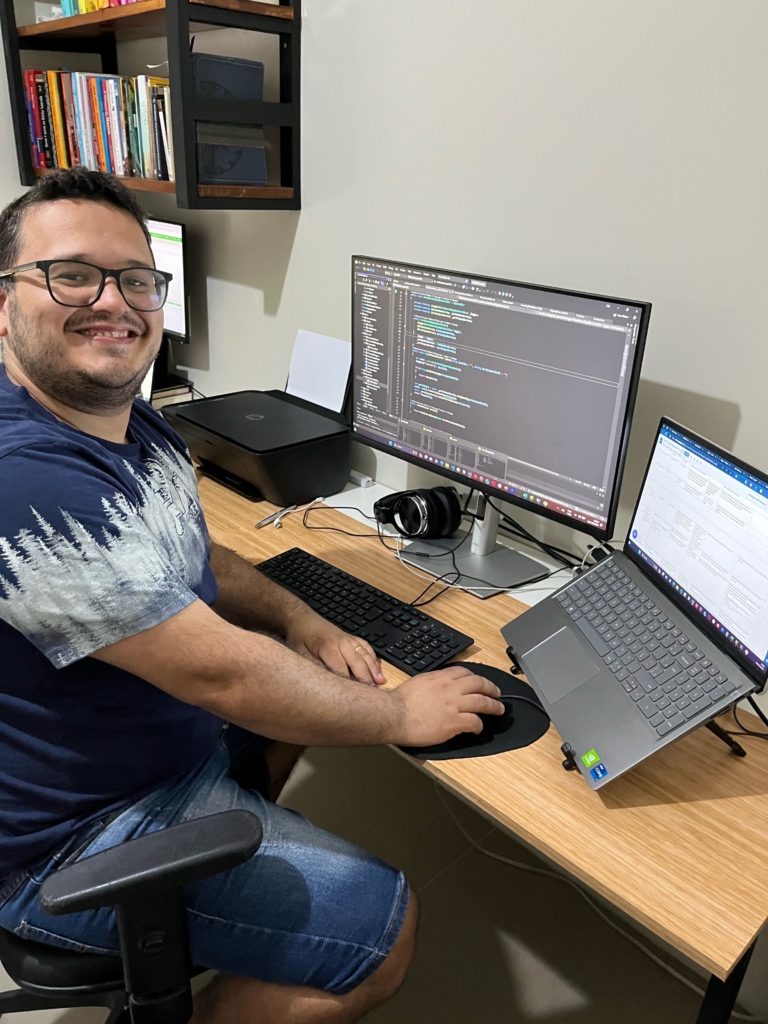

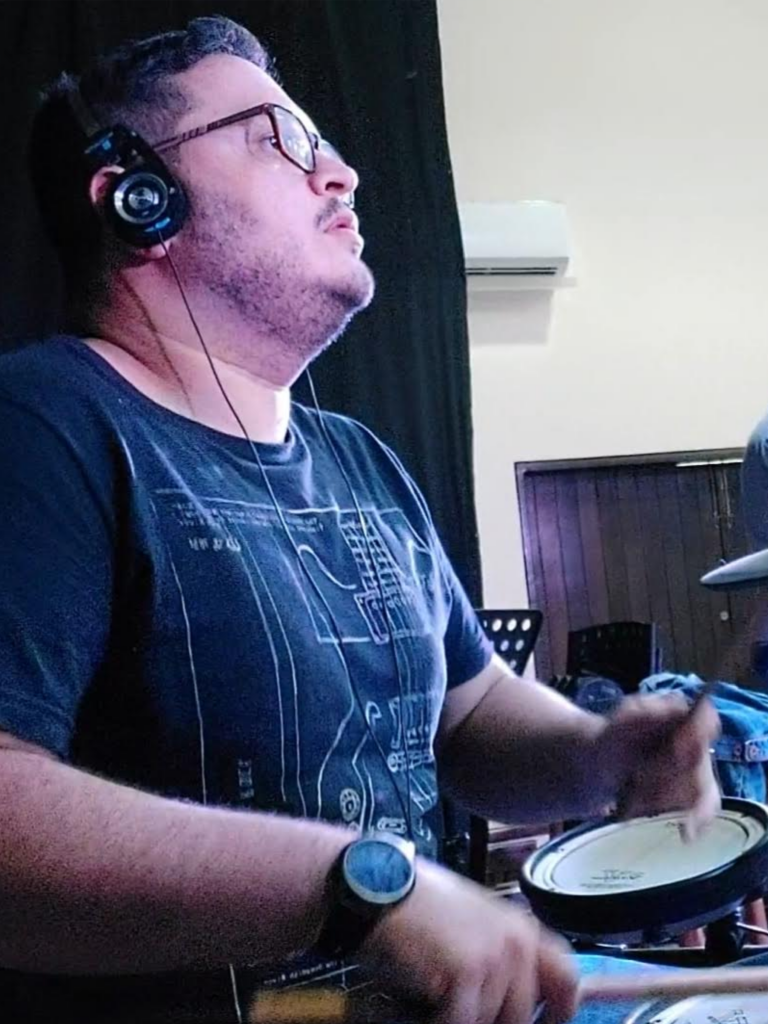
O papel crítico da visão de negócios no desenvolvimento de software nearshore
Trabalhar com programação parece ter se tornado algo bastante interessante para muitos, especialmente durante a pandemia do Covid-19. De fato, além de possuir boas remunerações, a profissão nos proporciona a grande vantagem de poder executar o trabalho estando bem longe do escritório, e no meu caso, a aproximadamente 5569km de distância.
No entanto, penso que apenas saber programar não é suficiente para elevar sua carreira para outro nível, é preciso ter uma visão clara e ampla sobre o que se está desenvolvendo, sobre o contexto do cliente e do negócio, sobre os cenários de uso, ambiente e pessoas que usarão o sistema.
Ter a preocupação e interesse de possuir essa ampla visão, juntamente com a habilidade de (não ter medo de) me comunicar claramente e nem ter vergonha de fazer perguntas me impulsiona a ir além e clarear o caminho para uma entrega de qualidade assim como construir um bom relacionamento com o cliente.
Dica nº 1: entenda vários aspectos da programação
O meu interesse por programação não foi parte desse “boom” durante a pandemia, ele surgiu a vários anos atrás e eu diria que de uma forma um tanto acidental.
Quando eu era pré-adolescente, meu desejo era mexer com eletrônica. Eu gostava de abrir meus brinquedos para entender como funcionavam e quando estavam quebrados, tentar consertá-los. Então, num certo ponto da minha adolescência conclui que queria ser “Engenheiro Eletrônico”, porém eu sabia que precisaria ser bom em Matemática e Física, o que não era o caso. Por causa disso, decidi, antes da educação em Eletrônica, fazer uma graduação iria me forçar a ser bom naquelas duas matérias, e aí escolhi estudar Licenciatura em Física (um curso de concorrência baixa na época)
Bom, até aí eu nem tinha ideia do que era programar. Na verdade, eu só fui possuir um computador um pouco depois do início da graduação em Física.
Nessa época, eu morava numa pequena cidade do interior de Pernambuco, chamada Escada e lá havia uma Escola Técnica que passou a ofertar o curso de Técnico em Informática. Como eu gostava de usar computador (usava bastante em Lan Houses antes de ter o meu primeiro PC), decidi me matricular. O primeiro módulo foi para aprender a utilizar ferramentas do Office – Word, Excel e PowerPoint – Achei muito bom. O segundo módulo, que foi menos interessante, focou em redes de computadores.
E o terceiro e último: Desenvolvimento de Aplicativos Desktop. E foi naquele momento que descobri o mundo da programação. Fiquei fascinado em poder agora não só usar um computador, mas também por escrever instruções que fazia o computador agir da forma como eu queria. Durante aquele terceiro módulo me apaixonei pela programação, houve dias que virei a noite programando e percebi que era aquilo que eu queria para minha vida, era o que iria me fazer acordar feliz todos os dias para ir trabalhar.
Agora, com a decisão sobre minha carreira tomada, interrompi o curso de Licenciatura em Física e estudei um ano para realizar o exame necessário para ingressar na Universidade Federal de Pernambuco. As opções de cursos disponíveis eram Ciência da Computação, Engenharia da Computação e Sistemas de Informação.
Para mim, minha prática de desenvolvimento de software nearshore foi definida pela paixão que tenho pelo desenvolvimento de software. Para aqueles que seguem da mesma maneira, utilizando toda experiência passada para influenciar na forma de trabalhar, os resultados serão de maior qualidade. Pessoas fazendo o que amam têm um impacto significativo nos processos, fluxos de trabalho e relacionamentos com os clientes.
Dica nº 2: Entenda os sistemas de informação para unir tecnologia e negócios
Em Engenharia da Computação, o foco é em sistemas embarcados e hardware. Em Ciência da Computação, o curso forma um profissional com conhecimento profundo em desenvolvimento de software, incluindo compiladores, gerenciamento de memória, hardware, etc. O meu desejo era ingressar nesse último, porém não era possível pois além da Universidade ficar a 70km de onde eu morava, o horário do curso era manhã e tarde, me impossibilitando de trabalhar, algo necessário para mim na época. Assim, decidi optar por Sistemas de Informação por ser um curso noturno.
Apesar de não ser necessariamente o que eu almejava, o curso de Sistemas de Informação possui um diferencial comparado ao curso de Ciência da Computação que, como primeira impressão, parecia ser algo chato, mas na verdade se mostrou muito importante na minha carreira como desenvolvedor.
Em Sistemas de Informação, 30% do curso é voltado para a área de administração, oferecendo ao estudante, além de um conhecimento técnico, conhecimentos na área de negócios, processos e gestão de pessoas, com algumas dessas disciplinas sendo:
- Administração Contemporânea
- Análise das Organizações
- Comportamento Organizacional
- Gestão de Pessoas e Equipes
- Estratégia e Planejamento
Talvez para muitos isso talvez possa parecer perda de tempo ou desnecessário, mas quando um programador possui tais conhecimentos, haverá uma influência positiva no projeto desde sua concepção até a entrega.
E isso é especialmente importante no desenvolvimento de software nearshore onde uma expertise inesperada não apenas melhora a satisfação do cliente, mas também pode aprimorar a eficiência no fluxo de trabalho, manter prazos críticos e aplicar recursos estrategicamente.
Dica nº 3: aplique seu conhecimento de negócios à sua prática de desenvolvimento
Lembro de algumas vezes ouvir críticas a respeito do curso ensinar disciplinas da área de administração, afirmando que seriam tópicos desnecessários e que só serviam para “encher linguiça”. Confesso que às vezes concordava com as afirmações.
No entanto, logo no início da carreira pude constatar a importância de ter visão ampla do negócio e de ter um bom relacionamento com o cliente. Em minha primeira experiência como desenvolvedor trabalhei dentro do escritório do cliente, implementando um sistema para gerenciar o fluxo de atendimento desde o primeiro contato do cliente até a distribuição das tarefas entre as áreas internas.
O fato de estar em constante contato com os futuros usuários do sistema em desenvolvimento e poder ver a rotina de trabalho delas, me possibilitou uma comunicação clara e mais assertiva, além de uma compreensão mais precisa da necessidade deles, me possibilitando fazer sugestões de como determinadas funcionalidades poderiam ser mais bem implementadas ao unir o conhecimento do negócio ao técnico. Essa proximidade com o cliente também resultou em uma melhor e mais precisa análise de requisitos.
Além disso, a interação contínua com o cliente me permitiu trabalhar num estilo de desenvolvimento mais ágil, me fazendo estar mais preparado para me adaptar às mudanças nas prioridades do negócio. De novo, qualquer tempo e esforço que se economiza em desenvolvimento de software nearshore é uma grande vantagem.
Já na minha experiência profissional seguinte, as coisas mudaram bastante. Apesar de ainda não trabalhar num regime remoto, era quase como se fosse, pois, eu ia para o escritório da empresa, em Pernambuco, mas o cliente estava no Rio de Janeiro.
Nesse contexto, o trabalho já se tornou um pouco mais desafiador quando comparado ao anterior. Aqui é necessário ter mais proatividade e uma comunicação que exige mais atenção. Agora eu já não tinha como ver os possíveis usuários do sistema em ação, nem poderia interagir com eles diretamente, e uma boa compreensão do contexto deles e do negócio, me exigiu a busca de informações e o entendimento do negócio através de exploração de websites da empresa, simulações práticas e mais conversas via telefone ou skype e reuniões. Diria que foi uma prática distinta de como ter um bom relacionamento com o cliente, assim como o gerenciamento de tarefas. Mais na frente, não era apenas eu no trabalho de desenvolvimento, 2 novos desenvolvedores integraram o time, me dando a oportunidade de colocar em prática conceitos estudados sobre gestão de pessoas e equipes.
Apesar de estar longe da empresa para a qual estava prestando serviço, o fato de estar no mesmo país me permitiu fazer diversas viagens para o escritório do cliente, possibilitando, pontualmente, um contato mais próximo e uma interação mais ativa com momentos de visualização mais clara de como o negócio funcionava.
Sem compreender os princípios da comunicação empresarial, teria sido difícil estabelecer os relacionamentos sólidos que tornaram nosso envolvimento bem-sucedido.
Dica nº 4: use suas habilidades multidisciplinares para causar um impacto no mundo real
Depois de vários anos trabalhando no Brasil, para empresas brasileiras, decidi ir mais além. Nesse ponto foi onde eu pude me beneficiar da transformação causada pela forma como o mundo conduziu os negócios durante a pandemia do Covid-19 e passei a trabalhar para o exterior.
Agora nesse novo modelo de trabalho, os desafios aumentaram e além de uma distância significativamente maior, veio o desafio de me comunicar numa segunda língua. A comunicação é algo crucial para a execução de um bom trabalho como desenvolvedor, pois saber traduzir as aspectos técnicos em uma linguagem amigável para um cliente não técnico alinhado às necessidades do negócio nos permite fazer entrega com mais qualidade e reduz o risco de retrabalho. Apesar de ser mais desafiador colocar isso em prática numa segunda língua, o fato de já ter morado fora por 16 meses de gostar muito de falar inglês, torna o desafio mais prazeroso.
Aqui na Fresh Consulting, depois de alguns meses trabalhando num projeto interno, fui alocado em um cliente que vende um sistema para ser usado por empresas de um tipo de negócio totalmente novo para mim: gestão de resíduos.
No Brasil, até onde eu sei, a maioria das pessoas utilizam um serviço público de coleta ou pagam uma taxa embutida em algum outro serviço, em Blumenau, é junto com a conta de água. É realmente importante entender as diferenças de como as coisas funcionam nos Estados Unidos e Brazil, mas a comunicação clara possibilitou um entendimento sem falhas.
Para conhecer melhor sobre o negócio, entrei no website do cliente e assisti diversos vídeos de como o sistema era utilizado, além de ler alguns sites sobre o assunto e receber um treinamento (e prestar atenção a ele) de como as empresas de gestão de resíduos atuam nos Estados Unidos.
Ter o interesse e buscar entender como a indústria de gestão de resíduos funciona foi mais uma vez crucial para que eu pudesse executar meu trabalho de forma mais eficiente, me comunicar melhor e ir mais além de simplesmente pegar uma estória de usuário (ou ticket de trabalho) e executar, me fez entender melhor o impacto do que eu estava fazendo além de permitir fazer sugestões na implementação de algumas funcionalidades.
Ser um desenvolvedor de software nearshore completo exige habilidades além da execução de histórias de usuário e conclusão de tarefas. É nossa responsabilidade agregar valor aos clientes de maneiras inesperadas, aproveitando nossa experiência passada e sendo estratégicos solucionadores de problemas.
Atualmente estou trabalhando num projeto bastante significativo que me causa uma sensação de estar fazendo uma pequena contribuição para algo muito impactante: Atualmente, estou contribuindo para um projeto de grande impacto que permite às famílias encontrar o tratamento mais eficiente para crianças que nascem com problemas genéticos.
Apesar de ainda estarmos na primeira fase, entender detalhadamente como o sistema será utilizado e o contexto onde será utilizado me permitiu trabalhar não só com mais qualidade mas também com mais motivação.
A importância desse entendimento claro a respeito de como o sistema que estou desenvolvendo será utilizado e qual o valor que ele trará para o cliente aumenta num contexto em que estou trabalhando de forma assíncrona e a milhares de quilômetros de distância do cliente e dos outros membros da equipe. Já que a comunicação num trabalho remoto não é tão fluida como quando comparado a um time onde todos trabalham juntos num mesmo espaço, esse entendimento claro do negócio e requisitos do sistema por todos os membros da equipe é crucial para que haja uma boa sinergia entre os membros do time, uma entrega de projeto sem atrasos e de acordo com o cliente espera, e até mesmo um pouco mais do que o esperado.
Conjuntos de habilidades diversas aprimoram o desenvolvimento de software nearshore – a Fresh utiliza os talentos da nossa equipe para elevar os serviços ao cliente
Refletindo sobre minha carreira, concluo que programação é muito mais que codificar; é uma junção entre tecnologia, compreensão de negócios e habilidades interpessoais. Minha experiência em projetos de diversos setores e de várias formas de trabalho, até o trabalho remoto internacional, destaca a importância de ser um profissional que possui uma compreensão abrangente e multifacetada da profissão para aumentar a qualidade da entrega e do dia a dia no trabalho.
Por fim, encorajo empresas que estão em busca de aumentar sua equipe a ter uma olhar especial para os candidatos que possuem uma graduação semelhante ou que possuam experiências que demonstrem esses tipos de habilidades, pois acredito que vai ser, sem dúvida, um extra muito benéfico para entrega de ótimos resultados, ainda mais quando o sistema de trabalho é remoto ou nearshore como no meu caso.
Se você está em busca de uma equipe de desenvolvedores de software nearshore bem qualificados, por favor, entre em contato. Da área de saúde à tecnologia agrícola, da logística ao desenvolvimento de aplicativos personalizados, nossa equipe de desenvolvedores nearshore, guiados por princípios, pode ajudar você a construir produtos excepcionalmente de alta qualidade de maneira custo-efetiva e dentro do prazo.
Esperamos receber notícias suas!


